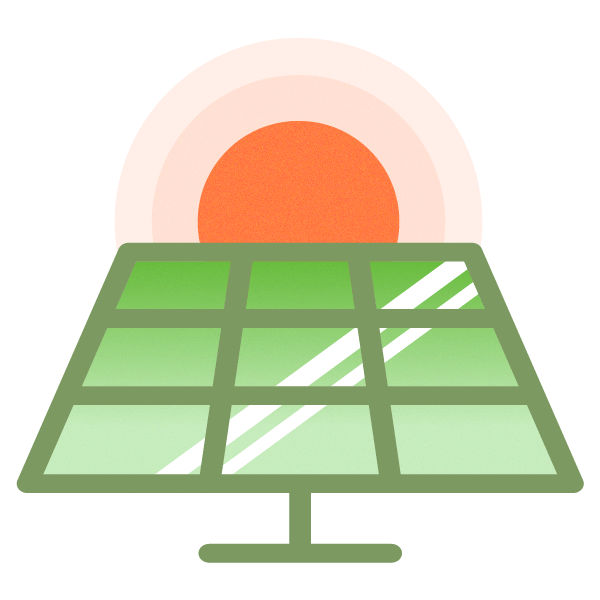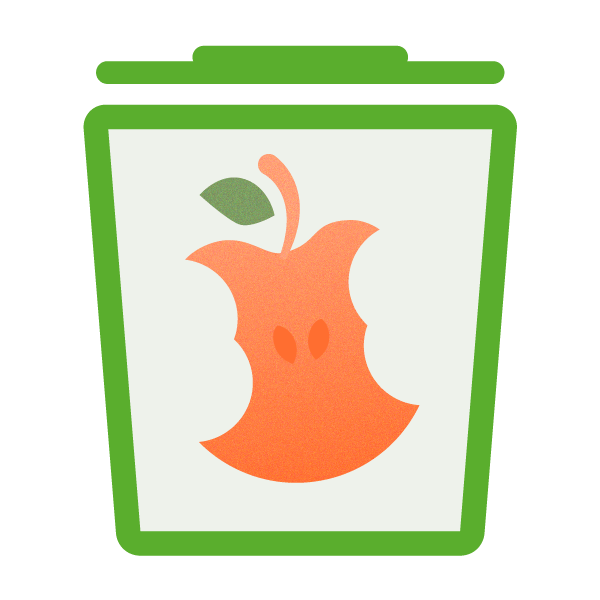The Special Projects Funding Program is on pause until further notice. Learn More
Special Projects Funding Program
Learn more about what kind of projects we support: check out our Funded Projects to see projects we have funded in the past, and to see where there are areas for growth.
If you would like to apply for the Sustainability Living Labs Funding Program (SLLFP), you can find out more details on it’s respected program page here.
1. Come Up with a Sustainable Idea
Our student sustainability projects all comprise one or more of our seven themes:

FOOD
These projects focus on the production and/or distribution of food on campus. This can include, for example, founding or maintaining an urban garden, improving available food options at an on- or near-campus outlet, or organizing an urban farmers’ market.

COMMUNITY
These projects seek to strengthen the Concordia community by hosting public events based on sustainability. This can include, for example, the provision or rehabilitation of a public space, or gatherings whose goal is not primarily educational.

SOCIAL JUSTICE
These projects seek to address a compelling social issue or need at Concordia, incorporating elements from the Community, Education & Research, and Health & Wellbeing categories of projects. Often these projects seek to organize a specific event or campaign in support of particular demands for change.

ENERGY, RESOURCES & TECHNOLOGY
These projects are primarily concerned with research and development of new technologies which will have an impact on sustainable development in the future.

EDUCATION
These projects seek to educate members of the campus community about topics in Sustainability, or provide them with new skills which they can use to further sustainable development at Concordia.

HEALTH & WELLBEING
These projects are centered around the health and wellbeing of members of the Concordia community, including projects seeking the support urban cycling and other physical activity, as well as projects to improve the physical environment of our campuses.

WASTE
These projects strive to reduce waste on campus, whether by reducing consumption or promoting recycling and reuse.
2. WHAT IS SUSTAINABILITY?
Sustainability is a mindset and a process that leads to reducing our ecological footprint and enhancing social well-being while maintaining economic viability both on and off campus.
To be sustainable in our decisions and activities is to take a long-term perspective, recognize resource capacities and balance the interconnected nature of our environment, society and economy. Thus, sustainability encompasses both protecting the environment and maintaining its essential services for future generations, as well as addressing social issues and strengthening communities. Together, this environmental and social focus is necessary for achieving healthy, just, and equitable societies.
Sustainability-related projects can address a myriad topics, such as:
3. ELIGIBILITY
All students currently enrolled at Concordia University are eligible for funding from the Sustainability Action Fund. The main applicant of any potential project must be a registered student, but Concordia community members (including staff, faculty, and alumni) and individuals from the broader community can participate in a project.
4. SAF CRITERIA
Only complete applications will be considered for funding. Before submission, ensure that your application clearly conveys the goals, planning, and impacts of your project. Also ensure that your project meets the following criteria for project funding, which are questions the Board asks when considering applications:
- The project is innovative: it deals with an important sustainability gap at Concordia, identifies a new problem and/or proposes a new solution
- The project enhances an existing project in a substantial way (rather than simple expansion, for instance)
- The project provides innovative alternatives to existing issues through engaging a new audience, forming new partnerships, experimenting with new processes
- Team possesses the knowledge and skills to execute the project
- Demonstrates a clear commitment to carry through the project
- Detailed and realistic timeline
- The budget is well-researched, comprehensive, detailed, and realistic
- Effective communication and outreach strategy to engage the Concordia community and established partnerships (financial or other) and links to important resources
- The project’s core content genuinely addresses environmental and/or social sustainability issues, and is not just greenwashed.
- The project’s process includes considerations of environmental and social impact.
- The project maximizes the impact of the funding they will receive
- The project nurtures learning and/or behaviour change at Concordia (and beyond) and decreases ecological footprint of Concordia and/or enhances student life
- It provides engagement opportunities for Concordia students; for example: volunteering, educational experience, applied research, leadership and/or paid work
- The application details the methods and metrics used to measure the project’s impact
- The idea/project can be transferred to other universities and/or community groups and/or has a longer-term vision, including the possibility of institutionalization
The Board will also consider the elements of your project in light of the amount of funding you are requesting, such as the quality of your stakeholder collaboration and your budget preparedness for a large-scale project. See below for ideas of what you will need to consider based on your funding range (note that these are just guidelines, and every project is considered on a case-by-case basis):
Projects that are short term, one time events, or start-ups that are seeking $1,500 or less, are eligible to be funded up to 100% of their project’s budget.
Projects that request between $1,500 and $10,000 will be reviewed to determine what percentage of their project budget is eligible for SAF funding. These projects should also investigate secondary sources of funding.
For projects requesting $10,000 or more, it is expected that at least 50% of the project’s total expenses be funded by other appropriate sources. The project should also have a long term outlook that involves collaboration with numerous Concordia affiliated stakeholders.
5. HOW CAN I USE SAF FUNDING?
The proposed budget must include all the items that you need funding for, their associated costs, an assessment of your ability to find reused or recycled materials, and plans for storage. Once approved, only those amounts will be granted.
Generally speaking, payment is issued as a reimbursement following the submission of original invoices and a cheque requisition form. In certain exceptional cases, the funds can be disbursed before the applicant has incurred any costs, contingent on the submission of an invoice stating the cost of the item, a cheque requisition form, and prior approval of the Chief Financial Officer.
Generally speaking, SAF funding can be allocated towards:
Conversely, SAF funding will not be allocated towards:
Please note: If you are applying for funding on behalf of an organization that collects a student fee-levy, the SAF retains the right to request up-to-date financial information on your organization during the SAF application process.
6. SAMPLE METRICS
Below you will find quantitative indicators used to assess the sustainability impact and the general success of projects. The metrics are devised into three categories: community engagement, environmental and social. When applying for funding, you will be asked to select seven (7) indicators that you will track during your project.
Applies to almost all projects funded by SAF. While not every project is able to achieve all of the objectives listed below, they should help guide your strategic thinking about who you want to engage with your project.
Number of Students Engaged
Number of Faculty Members Engaged
Number of Staff Engaged
Number of community members Engaged
Number of Volunteers (total)
Number of Hours Worked/Volunteered
Number of Attendees
Number of Departments Engaged
Number of Faculties Engaged
Number of other Project Partners (e.g. student groups, external groups, etc.)
Number of Students Receiving Credit
Number of Studies Conducted
Number of Papers Published
Useful for projects looking to make a direct contribution to the health of Concordia’s physical environment, either through raising awareness about environmental issues, implementing energy-saving programs, reducing waste, or undertaking natural conservation efforts. Please note that Organic food includes all food, which is eligible to be labelled as Organic through the “National Organic Standard” as determined by the Canadian Food Inspection Agency. Sustainable Food includes all food that is grown within 100km of the event where it is served, and grown by workers making a living wage. Please note that not all “Sustainable” food is “Organic”, and that not all “Organic” food is “Sustainable”.
Number of Talks/Presentations given by Concordia community members
Number of Talks/Presentations given by external speakers
Number of Talk/Presentation Attendees
Number of Conferences Presented
Number of Conference Attendees
Energy Savings (KJ)
Carbon Savings (Kg)
Fuel Savings (litres)
Waste Collected (Kg)
Waste Diverted From Landfill (Kg)
Amount of Material Recycled (Kg)
Amount of Material Reused (Kg)
Amount of Material Composted (Kg)
Amount of Rainwater Captured
Amount of Water Recycled (L)
Amount of Water Conserved (L)
Number of building audits conducted
Size of interior space audited (m^3)
Number of buildings monitored
Percentage of Organic food used
Percentage of Sustainable food used
Amount of On-Campus grown food purchased (Kg)
Amount of Sustainable Food Served (Kg)
Amount of Organic Food Served (Kg)
Number of People Fed Sustainably
Amount of Land Converted into Green Space (m^2)
Number of Species protected
Number of people exposed to natural environments
Number of people exposed to local florae
Number of people exposed to local faunae
Aimed at projects looking to make an impact in the field of social justice, either through conducting awareness events or campaigns, making resources available to groups and individuals, or lobbying decision-makers directly for change. This list should help you orient your project in terms of what sort of impact you are looking to make.
Number of Talks/Presentations given by Concordia community members
Number of Talks/Presentations given by external speakers
Number of Talk/Presentation Attendees
Number of Conferences Presented
Number of Conference Attendees
Number of Workshops facilitated by Concordia community members
Number of Workshops facilitated by Others
Number of Students Trained
Number of downloads of online resource
Number of publications used as course material
Number of courses using produced material
Number of letters/e-mails written to public servants (eg. Councillors, MNAs, MPs &c)
Number of letters/e-mails written to journalistic publications
Number of letters/e-mails printed in journalistic publications
Number of radio/TV interviews
Number of print interviews
Amount raised for Social Justice causes ($)
Number of Volunteers recruited
